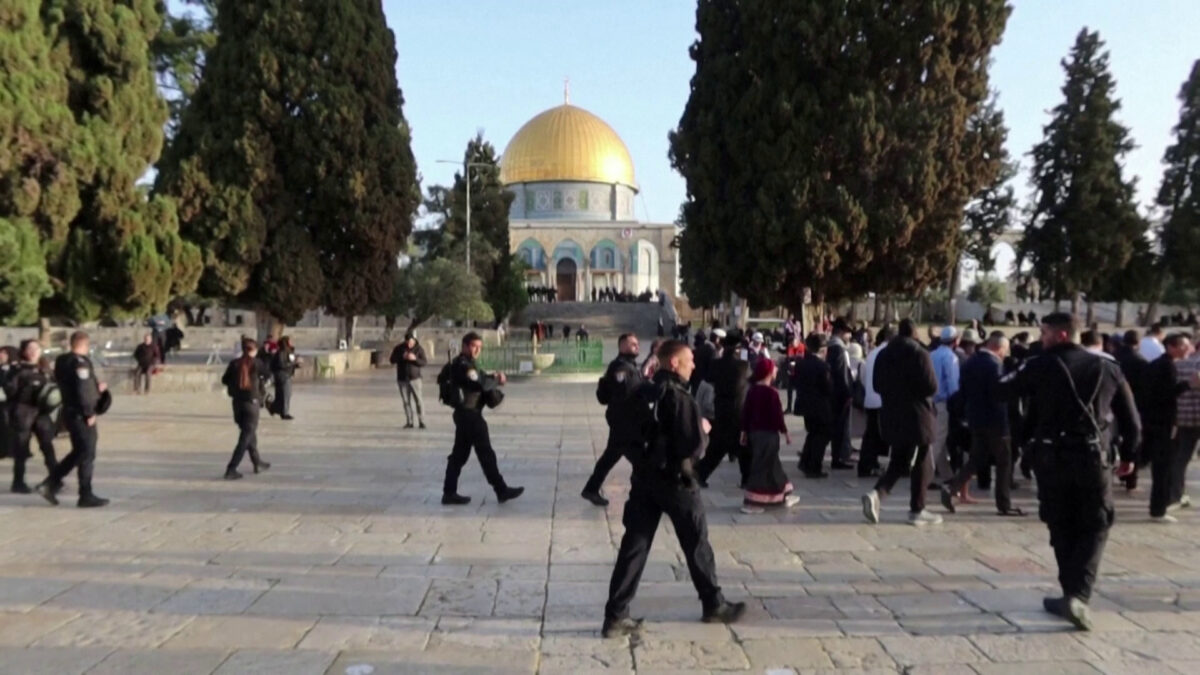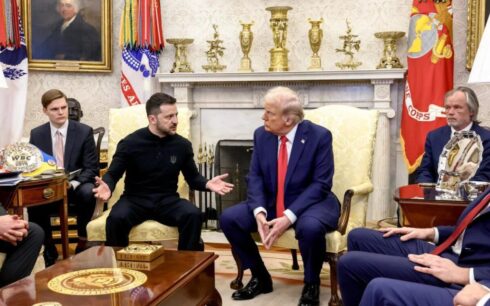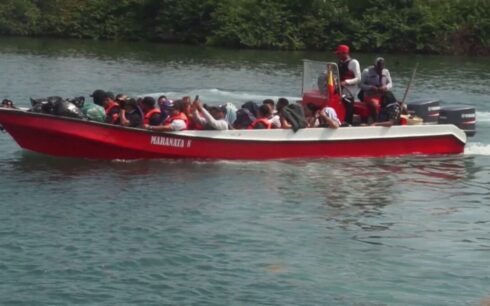Israel started calling up police and army reservists on Saturday amid heightened tension after separate attacks killed three people, including an Italian tourist, in Tel Aviv and the occupied West Bank.
Despite appeals for restraint from around the world, including the EU and the Organization of Islamic Cooperation (OIC), violence has surged since Israeli police clashed with Palestinians inside Jerusalem’s Al-Aqsa mosque on Wednesday, with Israel bombarding both Gaza and Lebanon in response to rocket fire by Palestinian militants.
In a statement issued by the OIC, the executive committee held an extraordinary meeting on Saturday in Jeddah in Saudi Arabia to discuss the attacks on the Al-Aqsa Mosque.
The committee condemned “in the strongest terms the dangerous escalation by the Israeli occupation forces and terrorist settlers by repeatedly storming the blessed Al-Aqsa Mosque / Al-Haram Al-Qudsi Ash-Sharif during the blessed month of Ramadan.”
The OIC said the attack on worshipers and those stationed in its courtyards while performing their prayers and rituals was “a flagrant provocation to the feelings of Muslims all over the world, an attack on the existing legal and historical situation, and a severe violation of international law and relevant United Nations resolutions.”
The committee warned Israeli forces against inflaming the situation and provoking “a religious confrontation with unforeseen consequences.”
The OIC also called on the UN Security Council, in its capacity as responsible for the maintenance of international peace and security, “to assume its responsibilities and take urgent action and necessary measures to deter and stop the dangerous Israeli escalation.”
This comes after days of tension and Friday’s attack which left one Italian dead and seven other tourists wounded. The incident happened when an Israeli Arab ploughed a car into pedestrians on the Tel Aviv seafront on Friday evening and flipped over before being shot dead.
Police identified the driver as a 45-year-old from the Arab town of Kfar Kassem in central Israel.
Palestinian movement Hamas, which rules Gaza, said the attack was a “natural and legitimate response” to Israel’s “aggression” in the Al-Aqsa mosque.
Earlier Friday, two British-Israeli sisters aged 16 and 20 were killed, and their mother seriously wounded when their car was fired on in the Jordan Valley in the occupied West Bank.
Reserves “mobilized”
Following the Tel Aviv attack, Prime Minister Benjamin Netanyahu instructed the police to “mobilize all reserve border police units” and directed the army to “mobilize additional forces”, his office said.
Police said four reserve battalions of border police would be deployed in city centers from Sunday, in addition to units already deployed in the Jerusalem region and in the central city of Lod, which has a mixed population of Jews and Arabs.
In the West Bank, Israeli troops came under fire in a drive-by shooting in the northern town of Yabad overnight, the army said on Saturday.
Cross-border strikes
Friday’s attacks came after Israel launched air strikes and an artillery bombardment before dawn in response to rocket fire from the Gaza Strip and Lebanon.
It was the heaviest rocket fire from Lebanon since Israel fought a 34-day war with Iran-backed militant group Hezbollah in 2006 and the first time Israel has confirmed an attack on Lebanese territory since April 2022.
Israel “struck targets, including terror infrastructures, belonging to the Hamas terrorist organization in southern Lebanon”, the army said.
The United Nations Interim Force in Lebanon (UNIFIL), which patrols the area along the border, urged restraint, noting: “Both sides have said they do not want a war.”
Mosque raid
On Wednesday, Israeli riot police stormed the prayer hall of Al-Aqsa mosque in a pre-dawn raid, aiming to dislodge “law-breaking youths and masked agitators” they said had barricaded themselves inside.
Ramadan coincided with the Jewish Passover holiday this year raising tensions with the tens of thousands of Palestinians who pray at the Al-Aqsa mosque during the Muslim fasting month.
The upsurge of violence drew condemnation from dozens of countries and the European Union. “The European Union expresses its total condemnation of these acts of violence,” said its foreign policy chief Josep Borrell.
“We urge all parties to exercise maximum restraint, to avoid further escalation and promote calm for the ongoing religious holidays,” he said in a statement.
The Muslim holy month of Ramadan, Judaism’s Passover and Christian Easter are all occurring this month.





